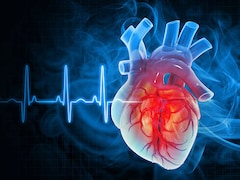Research is emerging that suggests a high-sodium diet could worsen symptoms of depression, anxiety, and even increase the risk of neurodegenerative diseases.

Can Excessive Salt Intake Affect Your Mental Health?
Salt is an essential part of our diet, helping maintain fluid balance, support nerve function, and regulate blood pressure. However, modern diets, particularly processed and packaged foods, have dramatically increased our daily salt intake beyond recommended levels. While excessive salt is widely known for contributing to high blood pressure and cardiovascular disease, recent studies have begun linking high sodium intake to mental health conditions. From increased anxiety to cognitive impairment, the effect of salt on the brain is becoming a growing concern. According to the World Health Organisation (WHO), reducing salt intake is crucial not just for heart health, but for overall well-being.
How excess salt could influence your brain and mood
Your brain is highly sensitive to chemical changes in the body. Consuming too much salt may affect hormones, blood pressure, and inflammation, each of which can impact your mental health. Research is emerging that suggests a high-sodium diet could worsen symptoms of depression, anxiety, and even increase the risk of neurodegenerative diseases.
1. Triggers inflammation in the brain
Excessive sodium has been linked to increased inflammation throughout the body, including the brain. A 2021 study published in Nature Neuroscience found that inflammation caused by high salt intake can impair neurons, especially in regions like the hippocampus that control mood and memory.
2. Reduces blood flow to the brain
Too much salt can lead to hypertension, which narrows blood vessels and restricts blood flow to the brain. Over time, this can cause cognitive decline, memory issues, and may even contribute to the development of dementia. The American Heart Association warns that uncontrolled blood pressure is a silent but significant contributor to brain damage.
3. Impacts the gut-brain axis
A high-salt diet can disrupt the gut microbiota, which in turn affects the gut-brain axis—a communication pathway between your digestive tract and brain. An imbalance in gut bacteria has been associated with increased anxiety and depressive symptoms. According to research from the National Institutes of Health (NIH), the gut microbiome plays a critical role in regulating mood and mental clarity.
4. May elevate cortisol levels
Salt influences the body's hormonal balance. A study from Hypertension journal showed that high sodium intake can increase cortisol levels, the body's primary stress hormone. Elevated cortisol has been linked with anxiety, irritability, and even depressive episodes.
5. Can disturb sleep patterns
High salt consumption may lead to poor sleep quality, either by causing dehydration or increasing blood pressure overnight. Poor sleep is a well-known trigger for mental health issues, including irritability, low mood, and reduced concentration.
6. Possibly linked with neurodegeneration
Emerging research has shown that excessive salt intake could accelerate the risk of Alzheimer's disease. A 2020 study published in Cell suggested that high salt disrupts nitric oxide production, a compound essential for healthy blood vessels in the brain. Reduced nitric oxide impairs brain function and is associated with neurodegenerative conditions.
7. Increases the risk of mood disorders
People consuming high-sodium diets are more prone to experiencing mood fluctuations. Though the evidence is still evolving, studies from the Journal of Clinical Psychiatry note a possible correlation between high salt diets and an increased prevalence of depressive symptoms.
While salt is vital in moderation, excessive intake poses serious risks beyond physical health, it can compromise brain function and mental well-being. Experts from the WHO recommend keeping salt intake under 5 grams per day. Reducing processed foods and choosing fresh, whole ingredients is a practical first step toward safeguarding both your heart and your mind.
Disclaimer: This content including advice provides generic information only. It is in no way a substitute for a qualified medical opinion. Always consult a specialist or your own doctor for more information. NDTV does not claim responsibility for this information.
DoctorNDTV is the one stop site for all your health needs providing the most credible health information, health news and tips with expert advice on healthy living, diet plans, informative videos etc. You can get the most relevant and accurate info you need about health problems like diabetes, cancer, pregnancy, HIV and AIDS, weight loss and many other lifestyle diseases. We have a panel of over 350 experts who help us develop content by giving their valuable inputs and bringing to us the latest in the world of healthcare.














